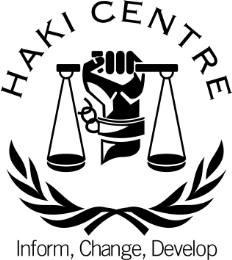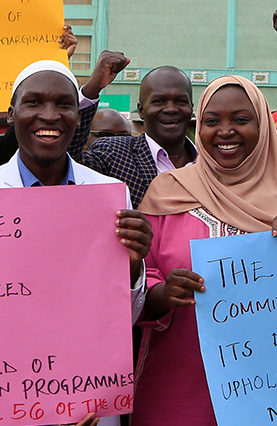
Members of Kenya’s Nubian community protest against ethnic discrimination in Kibera, Nairobi.
Our Journey in 2019 & 2020
Millions of Kenyan citizens face a discriminatory vetting process when applying for identity documents due to their ethnicity. This process can lead to their applications being denied. Without an ID, they cannot apply for a job, receive a bank loan, or access healthcare. They are excluded from society.
Namati Kenya and partners support community paralegals who help people navigate the unjust and complex process and secure their essential documents. We have been using data from all of those cases to build an argument, and a movement, to end the unconstitutional practice of vetting. But in early 2019 a new threat arose. One that would not only uphold citizenship discrimination, but entrench it.
Our Grassroots Impact at a Glance
In 2019 and 2020, paralegals supported members of historically marginalized groups to navigate a complex and discriminatory national identity system. While the process is ongoing for most, more than a thousand people secured their IDs, enabling them and their families to access essential services and take part in society.
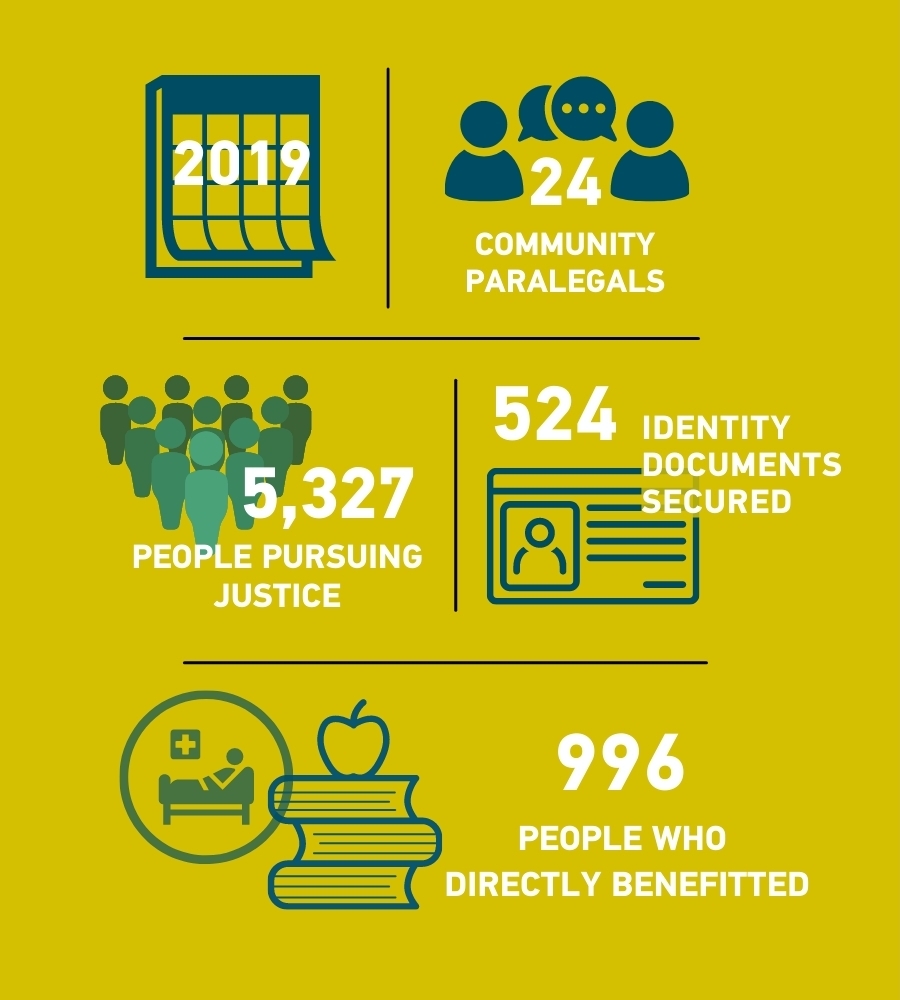
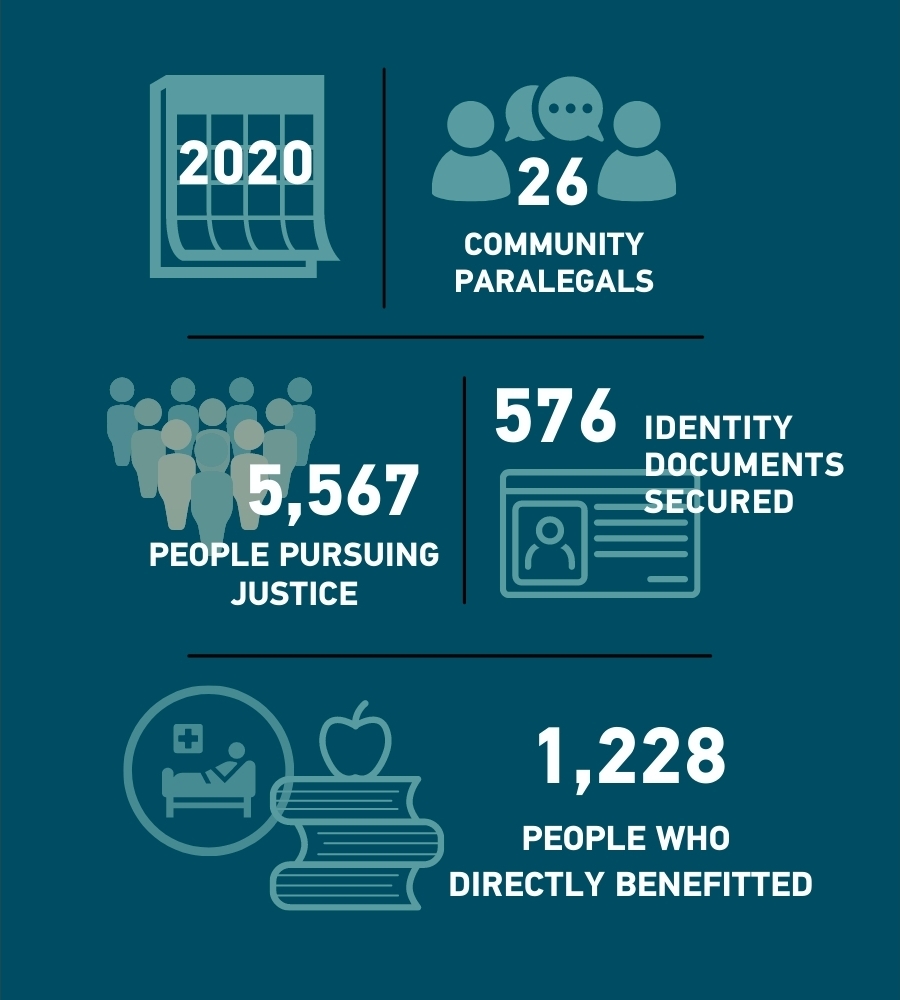
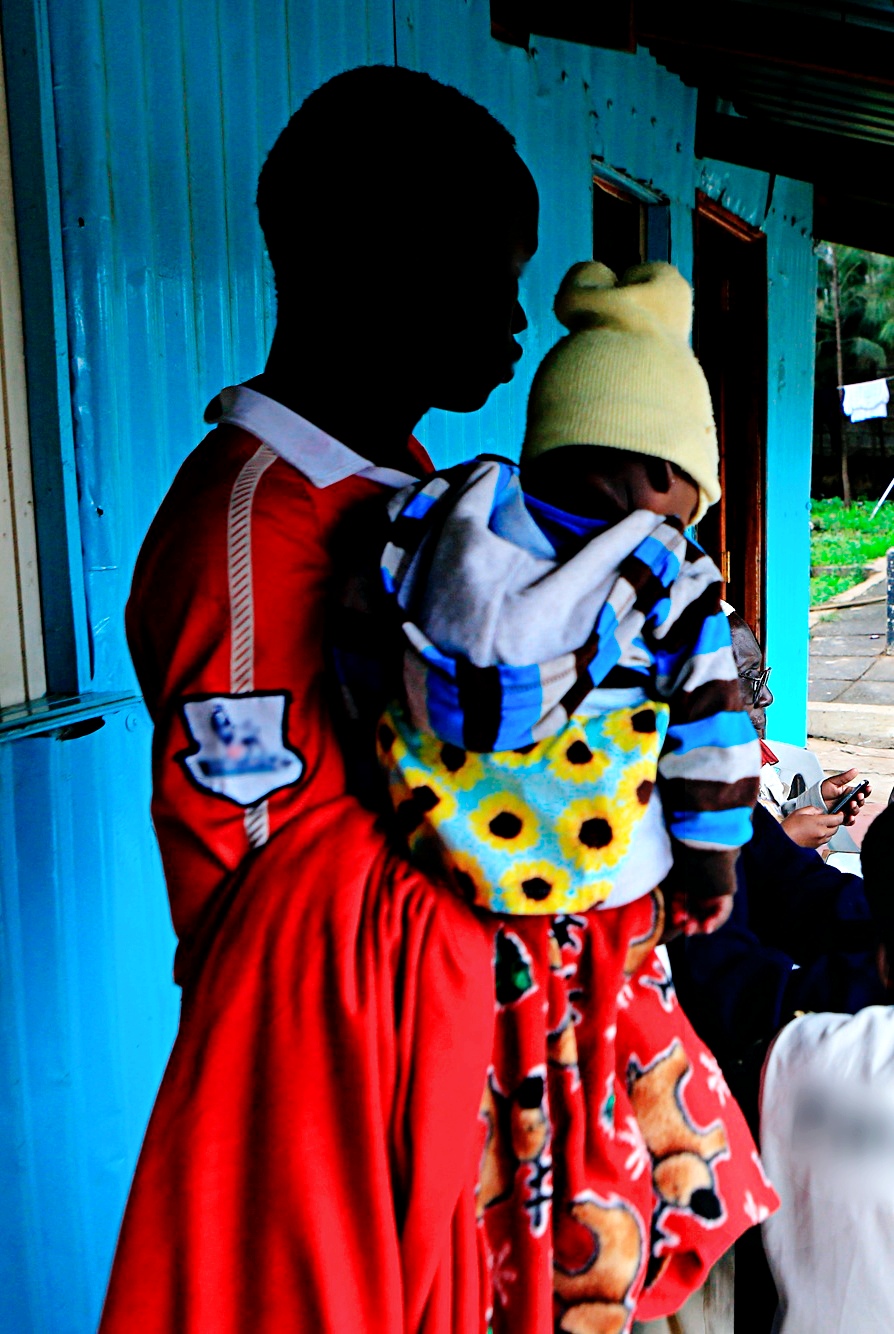
A man stands with a child in the shadows of the registrar’s office in Kibera.
Ziya’s Story: From Fighting for ID to Fighting the System
At 16, in her first year of high school, Ziya* gave birth. Just as she was learning how to be a mother to her son, her own mother died. “Things were bad,” recalls Ziya. “My mother was helping me raise the boy so that I could go to school. Now I was alone; I became his mother and father.”
Ziya had no choice but to drop out of school to fend for her son. She took on casual jobs in Kibera, the low-income area in Nairobi where she lives, but they did not pay enough to sustain a family of two.
At 18, Ziya tried to find domestic work in a wealthy neighborhood nearby, but no one would give her a chance without identification. “Petty theft by casual laborers is rampant, so everybody is cautious about who they let into their home,” explains Ziya.
This much became clear: if she wanted to provide for her son, she had to get her national ID card.
Writing to Grow the Movement
We aim to communicate the urgent need for citizenship justice to policymakers and people in Kenya and across the globe. In 2019 and 2020, we published or were featured in more than half a dozen op-eds and articles.
)
In the Press
Kenya’s New Digital IDs May Exclude Millions of Minorities
)
In the Press
Digital IDs Make Systemic Bias Worse
)
In the Press
Why Huduma Namba Bill raises tough queries
)
In the Press
Huduma Bill public participation a terrible flop
)
In the Press
Make data commission fully functional
)

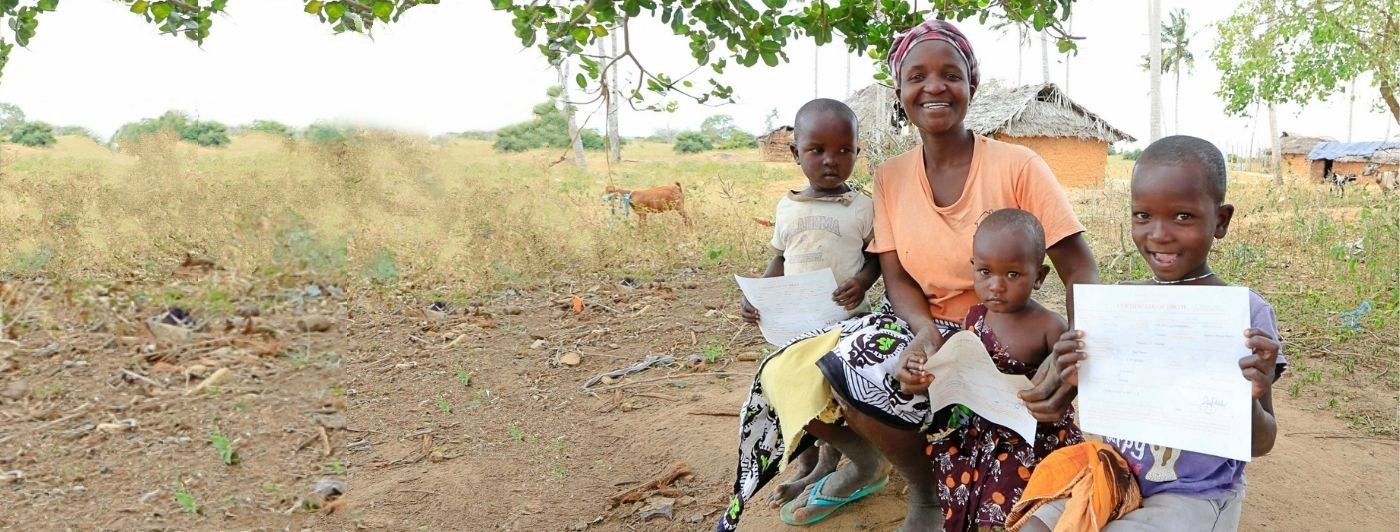
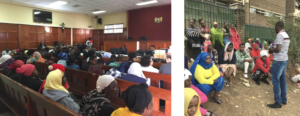
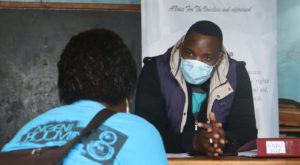
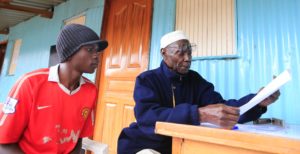
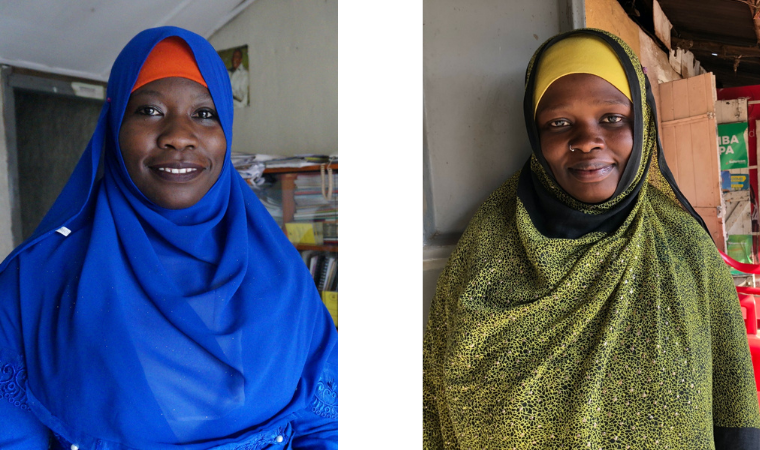
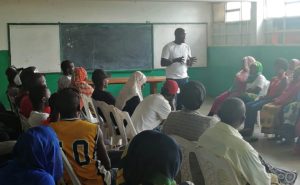
)
